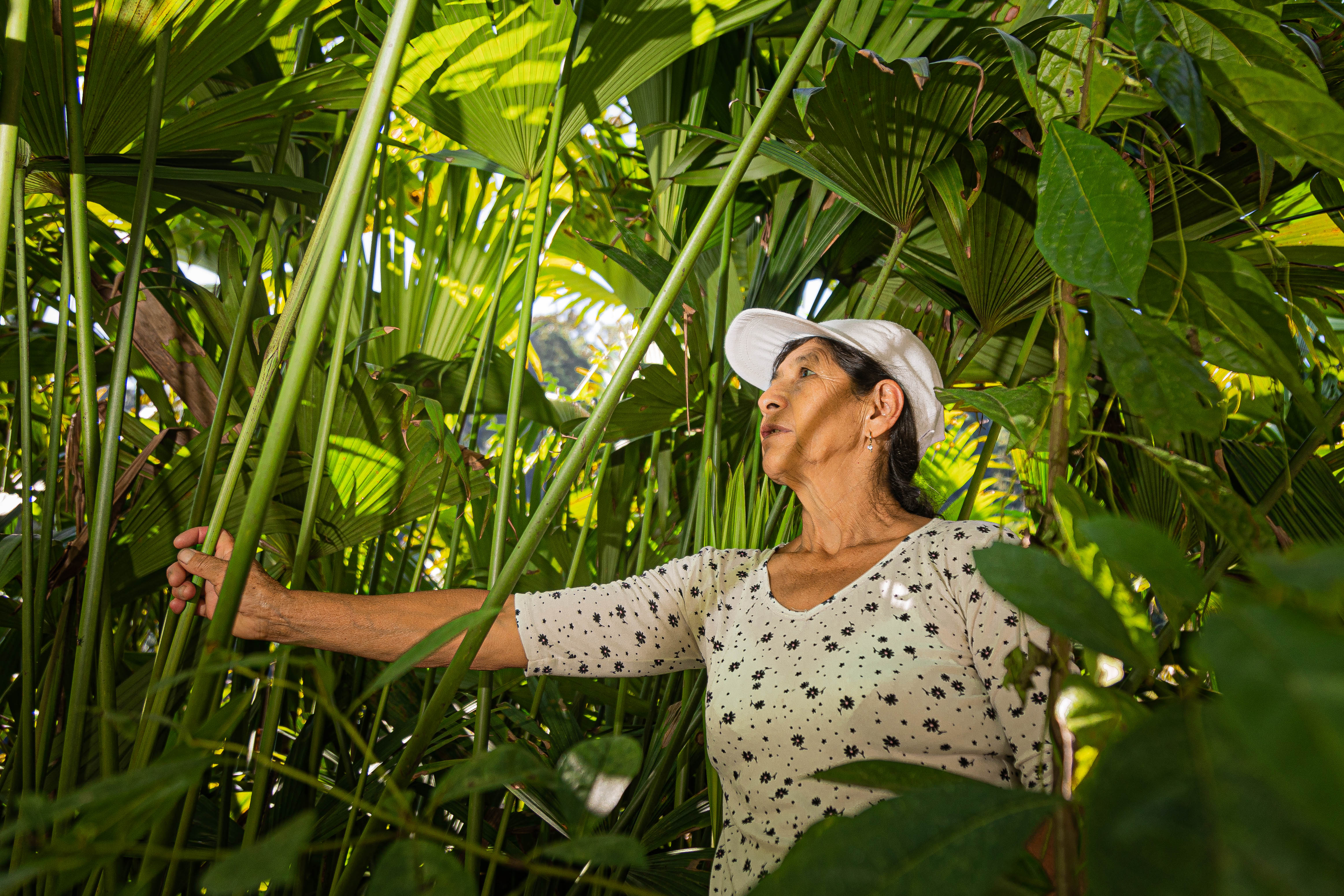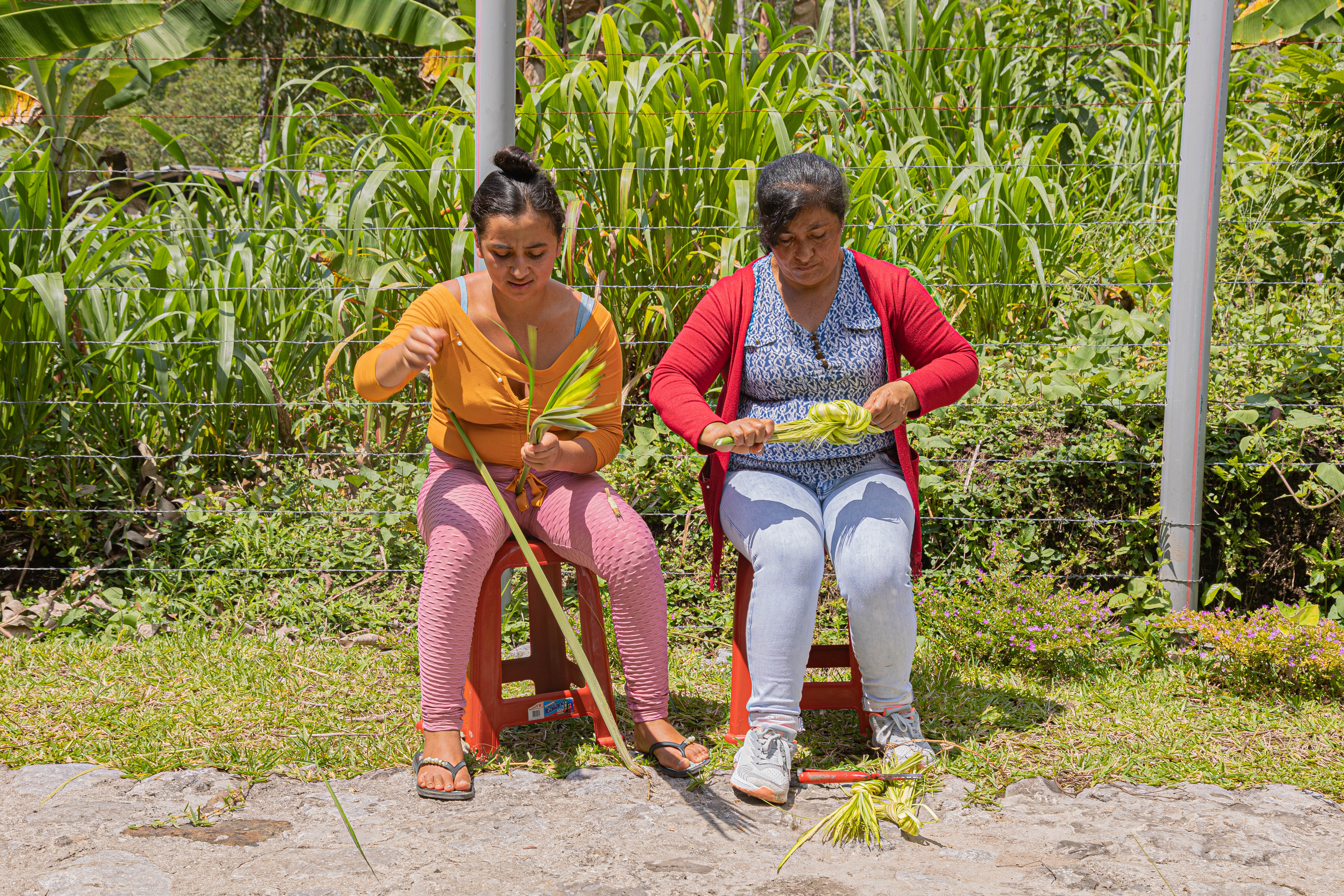According to data provided by the Production Ministry (2021), there are more than one million Micro and Small Enterprises, or MSEs, led by women in Peru, generating approximately 4.8 million jobs. These MSEs represent 21% of the Gross Domestic Product (GDP) and provide employment to more than 60% of the economically active population (EAP), as reported in 2023. Despite these achievements, gender gaps and structural barriers persist that limit the participation, growth, and consolidation of women-led businesses, particularly in the Amazon regions.

© Gonzalo Noriega
According to the Diagnosis on women's participation in sustainable business in the Amazon, published by the Amazon Business Alliance (AEA), a project led by the United States Agency for International Development (USAID), the Government of Canada and Conservation International Peru, one of the greatest difficulties for women entrepreneurs and business leaders in the Amazon is access to credit. In rural areas, this gap is directly linked to land tenure, which is predominantly in the hands of men. This limits the growth of women-led businesses, often keeping them so small that they never enter the formal financial system, thus limiting women's economic autonomy. The study highlights the need to create financial products and public and private interventions that take into consideration these issues.
This paper represents the first effort by AEA, in conjunction with the Instituto de Estudios Peruanos (IEP) and Género, Igualdad y Diversidades (GID), to identify, analyze and understand how women's participation in sustainable business is, or is not, taking place in the Peruvian Amazon. The results of this qualitative research shed light on the crucial role of women in sustainable development in the Amazon regions of Huánuco, Madre de Dios, San Martín and Ucayali, highlighting the characteristics, needs and participation of women in different stages of the predominant productive chains in each region. In addition, the study allows us to reflect on the importance of making visible the contribution of women in their diversity to sustainable development in different areas and territories.
The assessment highlights the gender gaps faced by women, linked to time use, care work and gender-based violence, which were exacerbated by the health crisis caused by the COVID19 pandemic. These structural gaps also limit their participation in sustainable business, so working with and for them provides opportunities for change and transformation. Along these lines, the study highlights that women have a high potential to generate personal, family and community impact, not only because the solutions provided by women address needs and market problems not fully addressed by the existing supply, but also because of their capacity to generate quality employment and improve the living conditions of the people around them. Thus, women's leadership in MSEs plays a fundamental role in promoting sustainable development in the Peruvian Amazon.
This study represents a significant step towards the recognition and empowerment of women leaders in the Peruvian Amazon, and a call to action to overcome gender barriers and promote sustainable and equitable development in the Amazon region.
For more information and access to the full document, please visit: https://alianzaempresarialamazonia.pe/en/

© Gonzalo Noriega
About the Amazon Business Alliance
The Amazon Business Alliance (ABA), led by the United States Agency for International Development (USAID), the Government of Canada and Conservation International, promotes investments in sustainable businesses that improve the quality of life of communities in the Peruvian Amazon and contribute to mitigating the impacts of climate change. An essential part of ABA's work is to include gender and intercultural approaches in all its interventions.
About the Institute of Peruvian Studies (IEP)
The Instituto de Estudios Peruanos (IEP) is a non-profit civil association founded in 1964, whose main objectives are the research and dissemination of social studies on Peru and other countries in the region. The IEP has developed various research projects in the disciplines of anthropology, economics, history, education, sociology and politics, which have served both for academic discussions and to influence the design of public policies.
About Gender Equality and Diversities
Género Igualdad y Diversidad (GID) is a company that provides technical assistance and accompaniment for capacity building, mainstreaming of rights-based approaches, recognition of equality and diversities in policies, plans, strategies, programmes and services of public and private institutions and communities.